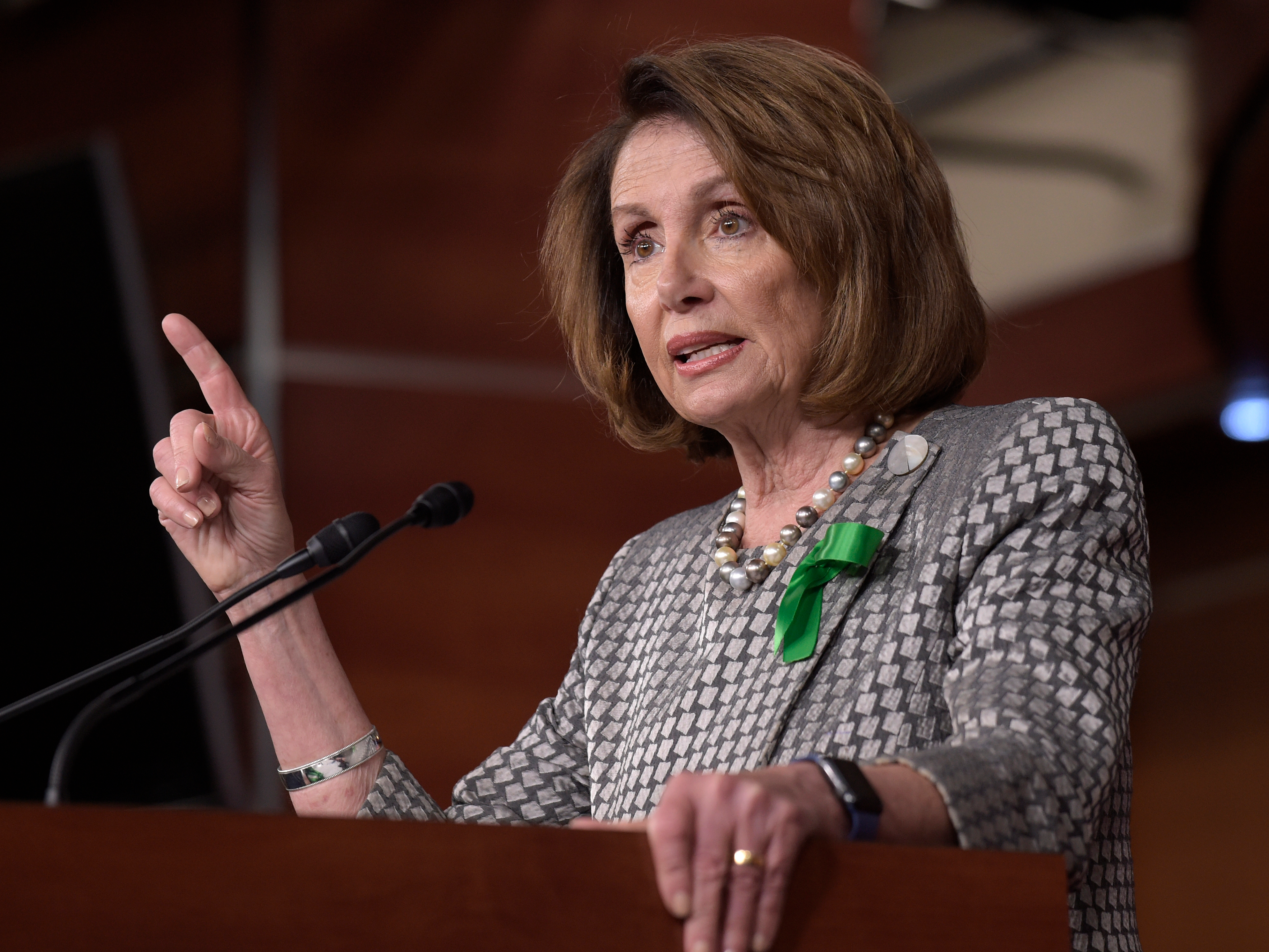- March is Women’s History Month, and it’s important to reflect on the powerful women who have pushed the boundaries and represented women in a usually male-dominated society.
-
Mae Carol Jemison was the first African American woman to travel to space, fighting for not only women, but racial representation in STEM.
- Aretha Franklin was the first female inducted into the Rock and Roll Hall of Fame.
- Visit Insider’s homepage for more stories.
There are thousands of women pushing boundaries and shattering glass ceilings every day so that future generations won’t have to worry that their dreams aren’t achievable.
Each of these historic triumphs helped move the women’s movement forward and they’ve inspired young children – of all genders and backgrounds – realize that they can do anything they set their minds to.
Here are 22 impressive women who broke through barriers.
Valentina Tereshkova became the first woman to go to space in 1963.

Tereshkova became the first and youngest woman to fly into space when she was launched aboard Vostok 6 on June 16, 1963.
She confirmed that the rumor is true: the space agency really did forget to send a toothbrush up with her for the legendary flight.
"Unfortunately it is a fact," Dr. Tereshkova said while speaking at London's Science Museum in 2015. "But I'm very resourceful as any woman would be. I had my toothpaste, and I had my hand, and I had water."
Source: History.com
Mae Carol Jemison went to space 29 years later in 1992, becoming the first African-American woman in space.
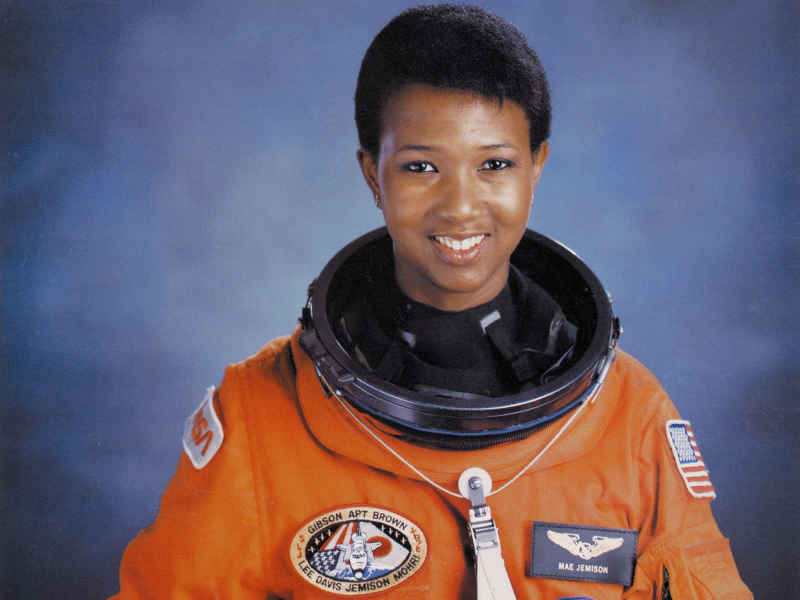
She's spent years speaking on the benefits of getting young children - regardless of their gender, nationality, or race - into the STEM fields and into space.
"It's important not only for a little black girl growing up to know, yeah, you can become an astronaut because here's Mae Jemison. But it's important for older white males who sometimes make decisions on those careers of those little black girls," she said during an interview with the Associated Press.
Source: NASA
Wilma Mankiller was the first female Principal Chief of the Cherokee tribe in 1985.
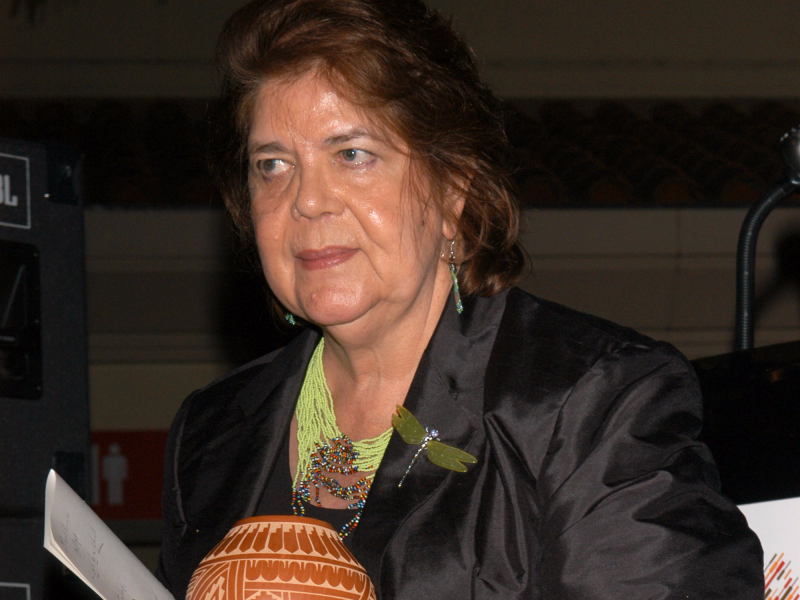
After she died at age 64 in 2010, President Barack Obama made a statement in her honor.
"As the Cherokee Nation's first female chief, she transformed the nation-to-nation relationship between the Cherokee Nation and the federal government, and served as an inspiration to women in Indian Country and across America," he said.
Source: Biography
Marie Curie was the first woman to win a Nobel Prize in 1903.
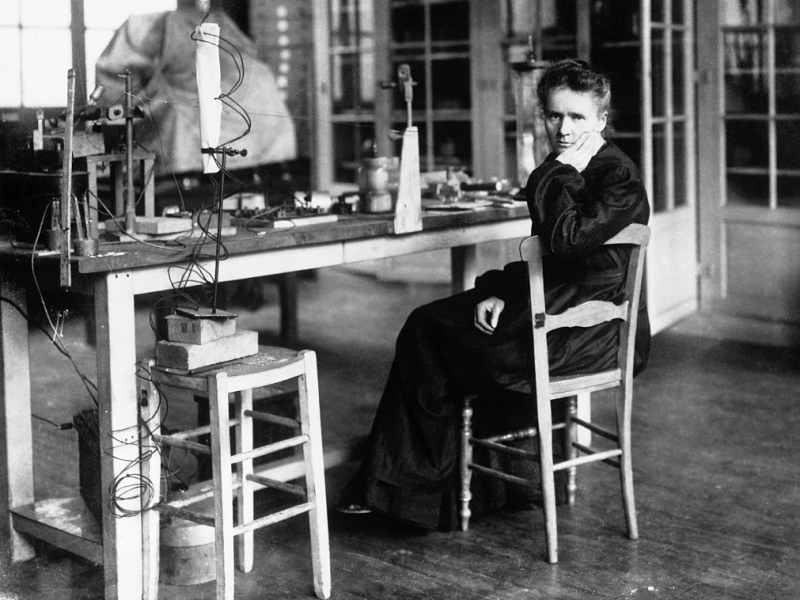
She won the prize for physics for her research on spontaneous radiation in 1903. She won the prize for chemistry eight years later in 1911 for her work in radioactivity.
In 1923, she published "Pierre Curry" with autobiographical notes about her work and life as well as the struggles in each.
"I was taught that the way of progress is neither swift nor easy," she wrote.
Source: Nobel Prize
Sarah Thomas became the first woman to referee for the NFL in 2015.

Despite her huge accomplishment, Thomas has stated time and time again that she doesn't want special attention or treatment.
"I think her approach from the very beginning was that all she wants to be is known as an official. But, she'll always be a trailblazer," said Gerry Austin, the supervisor of Conference USA's officials, to ESPN.
Source: ESPN
Aretha Franklin was the first female inducted into the Rock and Roll Hall of Fame in 1987.
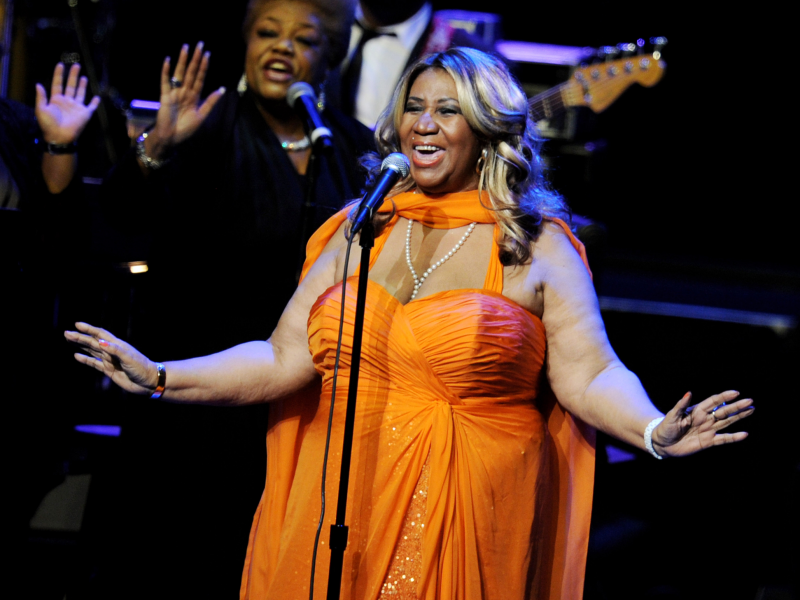
She received mounds of praise and fame for her incredible contributions to the music world, but she tried her hardest to stay humble, claiming that she wasn't a big force for the feminism movement.
"I think that's Gloria Steinem's role. I don't think I was a catalyst for the women's movement. Sorry. But if I were? So much the better," she said in an interview with Rolling Stone in 2014.
Source: Rock and Roll Hall of Fame
Junko Tabei reached the summit of Mount Everest in 1970, becoming the first woman to ever do so.

She was also the first woman to ascend all Seven Summits, which helped her shatter a big stereotype in her culture.
"Most Japanese men of my generation would expect the woman to stay at home and clean house," she said in a 1991 interview with the Los Angeles Times.
Sources: The Japan Times and The LA Times
Victoria Woodhull was the first woman to run for President of the United States in 1872.

Even cooler? She did so before women even had the right to vote.
Woodhull campaigned on the idea of "free love" declaring in a lecture that it's "an inalienable, constitutional and natural right to love whom I may, to love as long or as short a period as I can; to change that love every day if I please."
Source: Smithsonian Magazine
Janet Guthrie was the first woman to compete in the Daytona 500 in 1977.
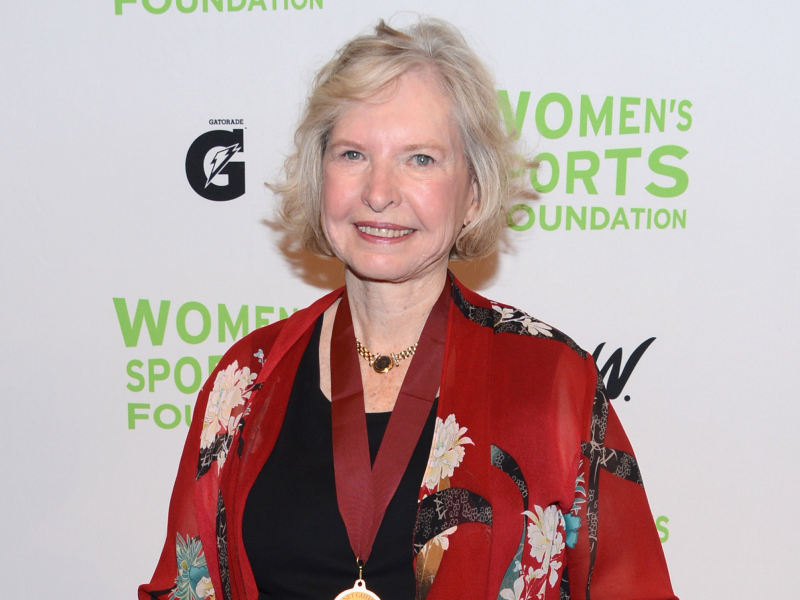
Guthrie got a lot of backlash for her participation in the male-dominated sport. People held signs that made inappropriate jokes and sportswriters made comments about her not being able to drive during certain times of the month. She denied that it bothered her for the longest time, but recently opened up to ESPN about how hard it was.
"During the year in between I had heard plenty of it at NASCAR tracks, too. So when we saw [signs] in '77, reporters asked me, 'Does that stuff bother you?' I told them no, I figured it was their problem or the Speedway's problem. Not mine," she said. "What a lie."
Source: ESPN
Ann Dunwoody was the first female four-star general in the Army in 2008.

She's come a long way since her start and thankfully, so has everyone else.
"It was like coming into the Dark Ages," she said in an interview with The New York Times in 1992. "Some senior officers perceived that their bosses would think less favorably of them if they allowed me to be assigned to the division in a critical position."
Sources: CNN and The New York Times
Sandra Day O'Connor was the first woman appointed to the US Supreme Court in 1981.

After graduating from law school, she said that at least 40 firms denied her an interview simply because she was a woman.
"I was a woman, and they said, 'We don't hire women,' and that was a shock to me. It was a total shock. It shouldn't have been. I should have known better. I should have followed what was going on, but I hadn't," she said in an interview with NPR." "And it just came as a real shock because I had done well in law school, and it never entered my mind that I couldn't even get an interview."
Sources: Biography.com and NPR
Vanessa Williams became the first African-American winner of the 1984 Miss America pageant.

Williams actually had to relinquish her title to the runner-up when Penthouse magazine announced that they'd be publishing unauthorized racy photos of her. The scandal propelled her into stardom, but she doesn't give the incident credit for her fame.
"It took me a long time to get where I am," she told People when she was just 25. "I'm here because of my guts and my talents."
She's since performed on Broadway, starred in hit shows like "Ugly Betty" and "Desperate Housewives," and recieved a star on the Hollywood Walk of Fame.
Source: AOL
Nancy Pelosi became the first female Speaker of the United States House of Representatives in 2007.

She's been called the most powerful woman in American history and she's not shying away from the title.
"That sounds good. I don't take it personally, except I take it as a compliment for all women because as the first woman Speaker I certainly wanted to demonstrate that we could get a job done that has eluded others for a century," she said to ABC news.
Source: ABC News
Edith Wharton was the first woman to win the Pulitzer Prize for fiction in 1921.

She gave way to thousands of female writers and poets when she was recognized for her work in the early 1900s.
100 years later, Vogue magazine made waves when it paid tribute to the author in the 2012 September issue by shooting authors in designer clothes outside of her historic estate. The problem? They only used male authors.
Novelist Katharine Weber summed it up best in Slate: "It's just sad that Wharton's legacy is so casually appropriated and misunderstood at the same time."
Kathryn Bigelow, who directed "The Hurt Locker," became the first woman to win an Academy Award for best director in 2010.

She beat out her ex-husband, James Cameron, for the award and said backstage that she hopes one day the gender of the director will be a "moot point."
"But I'm ever grateful if I can inspire some young, intrepid, tenacious male or female filmmaker and have them feel that the impossible is possible and never give up on your dream," Bigelow said.
Source: The Guardian
Carly Fiorina was a trailblazing executive who became the first woman to head a company listed on the Dow Jones.
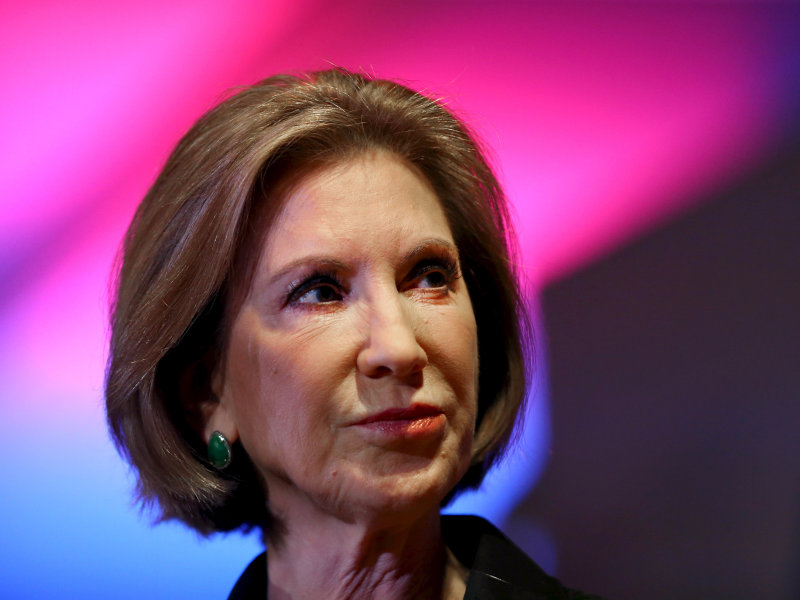
Fiorina started her career at AT&T and its spin-off Lucent Technologies, climbing the corporate hierarchy from management trainee to president of Lucent's global service-provider business. She was named CEO of Hewlett-Packard in 1999, becoming the first woman and outsider to lead the Fortune 500 company.
She also ran for President as a Republican in the 2016 election. She explained that feminism isn't black and white, but about having choices.
She describes a feminist as "a woman who lives the life she chooses […] A woman may choose to have five children and home-school them. She may choose to become a CEO, or run for president."
Source: Business Insider and Fortune
Mary Kies made a name for herself as the first woman to receive a US patent in 1809.

She created a new technique for sewing straw hats and, thanks to the Patents Act of 1790, was the first woman to receive a US patent. Sadly, the technique didn't get put to much use as fashions swiftly changed and Kies didn't get the fame or fortune that one might have expected.
She was, however, recognized after her death. Here's an article in The Windham County Transcript in 1965 about her headstone:
"Records say that Mrs. Kies died a pauper, and for the last 128 years her grave has been marked only by an uninscribed field stone.
When Grange Master Mervin Whipple and members of Killingly Grange No. 112 learned of this, they decided to pay proper respects to the unusual woman by erecting on her grave a suitable headstone. A monument now stands in the Old South Killingly cemetery in the memory of Mrs. Mary Dixon Kies, the first woman in the United States to apply for and receive a patent."
Source: National Women's History Museum
Regina Jonas was the first woman ever ordained as a rabbi in 1935.
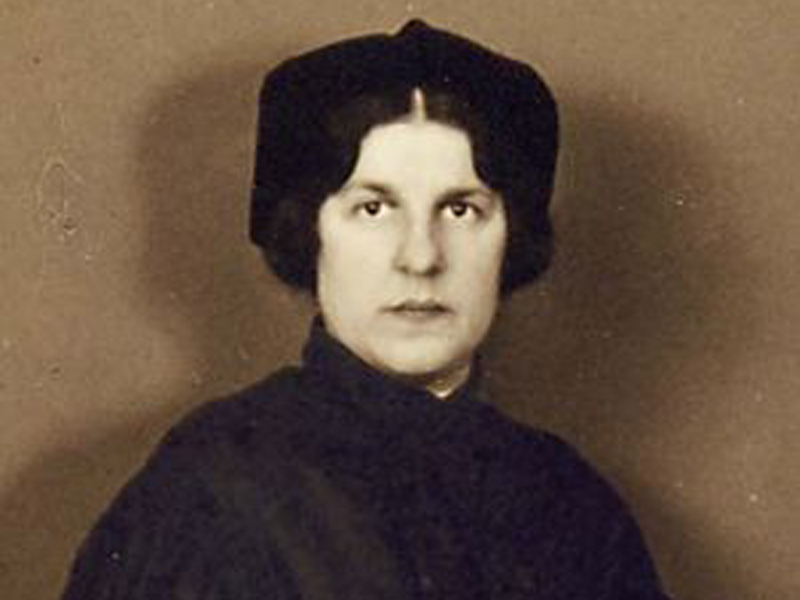
Despite an overwhelming acceptance of her thesis, "Can a Woman Be a Rabbi According to Halachic Sources?" she faced some backlash during her initial attempts to become a rabbi due to fear that it could separate congregations.
She was eventually ordained and spent nearly a decade as a rabbi before she was murdered at Auschwitz.
"Many in the latest generation of women rabbis don't think of themselves as feminists. For them, being a rabbi is a birthright; they grew up with women rabbis. They have little sense of what it took to get to this point," penned Rabbi Laura Gellar, who recently traveled from Berlin to Terezin in honor of Jonas.
Source: Jewish Women's Archive
Sirimavo Bandaranaike of Sri Lanka was the world's first woman elected to be the head of a country's government in 1960.
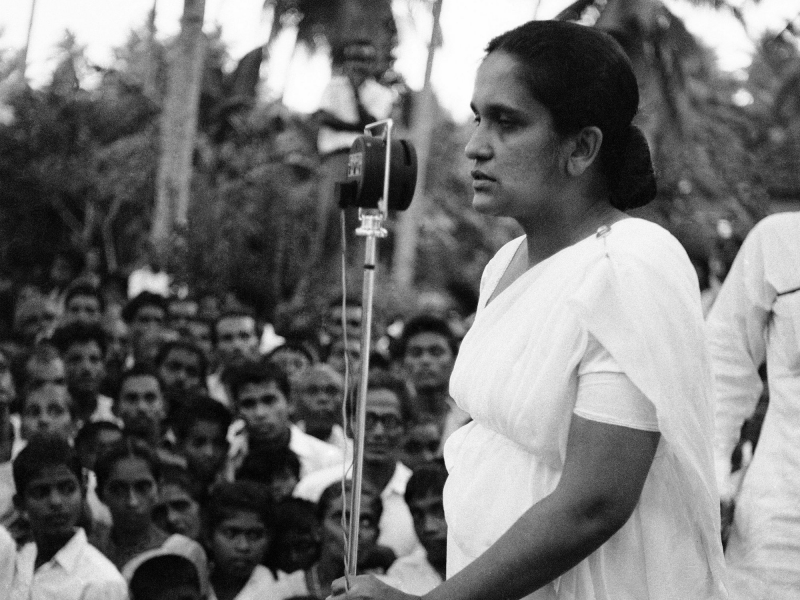
When Bandaranaike's husband and Sri Lanka's Prime Minister, Solomon, was assassinated in 1959, she stepped up to the political plate. Her daughter followed in the footsteps of her parents when she ran and won the position after her mother's death.
"She was a heroic mother of the nation," the Sri Lanka Freedom Party said in a statement following her death in 2000.
Source: The Guardian and The New York Times
Ella Fitzgerald was the first woman to ever take home a Grammy in 1959.

Fitzgerald is hailed as the Queen of Jazz and First Lady of Song for her revolutionary work in the music industry. She was also awarded a Presidential Medal of Freedom and a National Medal of Arts.
She didn't speak of her successes often but in an interview that The New York Times recalls, she finally revealed how she felt about being a legend.
"I don't think I noticed it at first," she said. But when Norman Granz and I began recording the 'Songbook' series in the mid-50's, it just seemed that more people began to like my singing. The awards I started winning didn't make me feel important, but they made me realize people loved me."
Source: The New York Times
Oprah Winfrey was the first black female billionaire in 2003.

She is best known for her award-winning talk show, "The Oprah Winfrey Show," which aired from 1986 to 2011. By the end of the show's first year on television, it had grossed $125 million, $30 million of which went to Winfrey.
She's conquered Hollywood with films such as "The Color Purple" and "The Butler," and is still a mainstay on television with her channel OWN, which launced in 2011.
The mogul has advocated for girls' education across the world and Oprah's Angel Network has raised more than $50 million for charitable programs.
Source: Business Insider
Elizabeth Blackwell became the first woman to earn her medical degree in the United States in 1849.
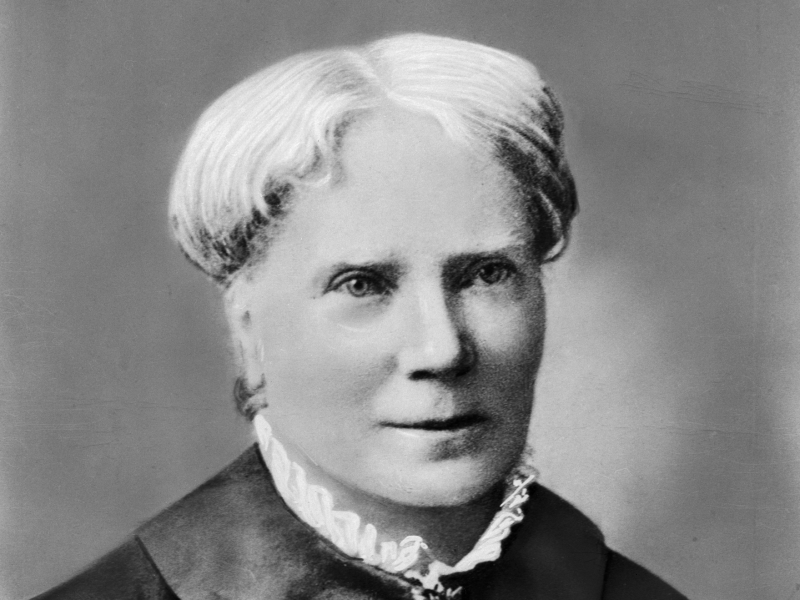
She was often told to retreat and study elsewhere or to disguise herself as a man to continue her studies, but persisted nonetheless.
"Neither the advice to go to Paris nor the suggestion of disguise tempted me for a moment," she wrote in a series of autobiographical sketches. "It was to my mind a moral crusade on which I had entered, a course of justice and common sense, and it must be pursued in the light of day, and with public sanction, in order to accomplish its end."
Source: Biography.com
- Read more:
- The 9 most iconic female duos in history
- 6 charts that show the glaring gap between men and women's salaries
- 11 surprising double standards that still exist for women in the US
